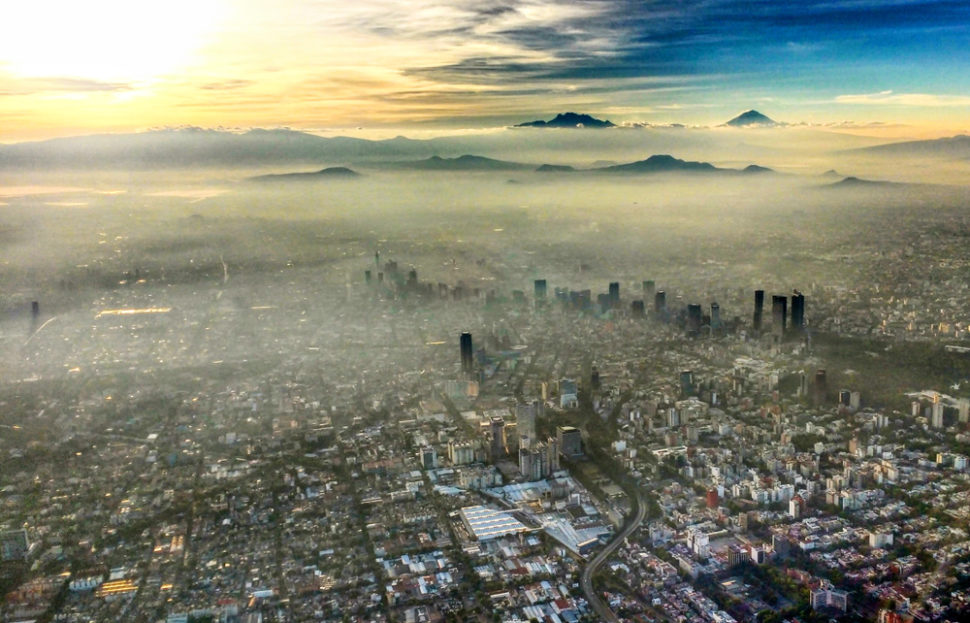The air quality in the world continues to deteriorate over time.
Imagery from atmosphere-monitoring satellites reveal the global extent of air pollution with regional differences varying in intensity.
Air pollution is the result of the concentration in the air of multiple pollutants of mainly an industrial origin.
Irritating gases for the respiratory system, such as nitrogen oxides, are mainly exhausted by combustion engines.
Particulates, or aerosols, which are so small that they could pose dangerous effects for the respiratory tract, come from more varied sources, such as wearing vehicle brakes, wood heating, and industrial activities. There is also particulate matter of natural origin, like volcanic emissions.
Each year, millions worldwide die from complications due to outdoor and indoor air pollution, but it’s hardly brought up.
Air Pollution, Human Right Violation
Cardiovascular and lung diseases, respiratory infections, and cancer are the top common causes of death in the world, killing millions of people each year.
Exposure to air pollution has been linked to all oftheses killers. Estimates claim that one third of all deaths from heart disease, stroke, and lung cancer are due to air pollution. Just recently, research showed outdoor air pollution triggers over 3 million new diabetes cases globally each year.
All in all, more than 7 million people , including 600,000 children, lose their lives to polluted air each year.
With 9 out of 10 people in the world breathing dirty air, the major adverse effects of air pollution on health will continue taking their heavy toll.
Yet, despite the heavy bodycount of air pollution and its economical burden, the issue is less talked about and much less addressed on a global scale.
According to David Boyd, the UN Special Rapporteur on human rights and the environment, the air pollution:
“pandemic receives inadequate attention as these deaths are not as dramatic as those caused by other disasters or epidemics.”
Boyd said air pollution is a “silent, sometimes invisible, prolific killer” that affects women and children more than men.
He also think having access to clean air as part of a healthy environment is a fundamental human right that’s legally recognised, yet violated, by 155 UN member States.
Read More: The Unexpected Side Effects of Cleaning Urban Air Pollution
The deaths caused by exposure to pollution are “preventable”, according to Boyd. He calls for continuous monitoring of air quality and pollution sources, setting air quality regulations, and establishing local and national air quality action plans among other measures to improve air quality.
According to Boyd:
“There are many examples of good practices, such as programmes in India and Indonesia that have helped millions of poor families switch to cleaner cooking technologies and States that are successfully eliminating the use of coal-fired power plants. Many actions to ensure cleaner air can be designed to simultaneously reduce the greenhouse gas emissions that cause climate change, resulting in a double dividend,”



















Comments (0)
Most Recent